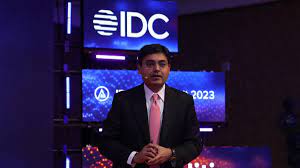In a strategic partnership, Angola Mastercard and Empresa Interbancária de Serviços S.A. (EMIS) are developing a co-branded smart card with EMV technology that both businesses will use.
This project aims to boost the digital economy and speed up the digital progress of both companies.
The Interbank Service Company, EMIS, manages the Angolan Payment System. It manages the banking system. It is in charge of managing the interbank network, which includes ATMs and POS devices. EMIS is Angola’s Mobile Virtual Process Operator (MVPO) and bank direct debit and funds transfer clearinghouse.
Read also: Mastercard, Alerzo partner to digitize Nigerian SMEs
Angola’s partnership
This agreement gives Angolan consumers and small business owners a single card for cross-border payments. This makes payment methods work better together.
Financial institutions also gain from this relationship. Mastercard’s cutting-edge technology and ability to save money on costs will help their home market and card offerings. This will make the neighborhood plan better. The Angolan Central Bank (BNA) wants to help more people get access to banking services and improve the digital economy and ecosystem of the country.
As part of this agreement, Angolan banks will be able to use Mastercard’s loyalty platform, the national fraud and risk management solution, and Mastercard Payments Gateway Services. These tools will make it easier for e-commerce businesses to get help and for online deals to go smoothly.
Mark Elliott, Mastercard’s Division President for Sub-Saharan Africa, said, “Our approach to innovation is to work with like-minded partners to fuel a digital economy that works for everyone around the world. Our partnership with EMIS shows how committed we are to helping key players around the world build an interconnected global payments ecosystem that meets different customer needs.
The CEO of EMIS, José Matos, said, “Angola has made a lot of progress in the financial services area, and our partnership with Mastercard is meant to speed up this progress. Through this relationship, we are dedicated to bringing the many benefits of a fully-fledged interoperable payment system to the people of Angola as soon as possible. This will create a complete digital and financial ecosystem for them.
Angola supports ICT and digital transformation
Angola’s focus on digital transformation and the growth of the information and communication technologies (ICT) sector is strategic in many ways. The government sees these as important parts of socio-economic development, important in the fight against poverty and the exclusion of vulnerable groups, and important in driving modernization.
In May 2022, Manuel Homem, the Minister of Telecommunications, Information Technologies, and Social Communication, emphasised the Angolan government’s role in improving the Single Digital Market in Africa and the business climate. So, the government has focused on promoting and backing the modernization of technology to ensure good governance, more people having access to financial services, and better economic and social well-being.
Mastercard’s partnership with EMIS fits right in with its global commitment to financial inclusion. It wants to bring 1 billion people, including 50 million micro and small businesses and 25 million women entrepreneurs, into the digital economy by 2025 through a number of initiatives and partnerships.


